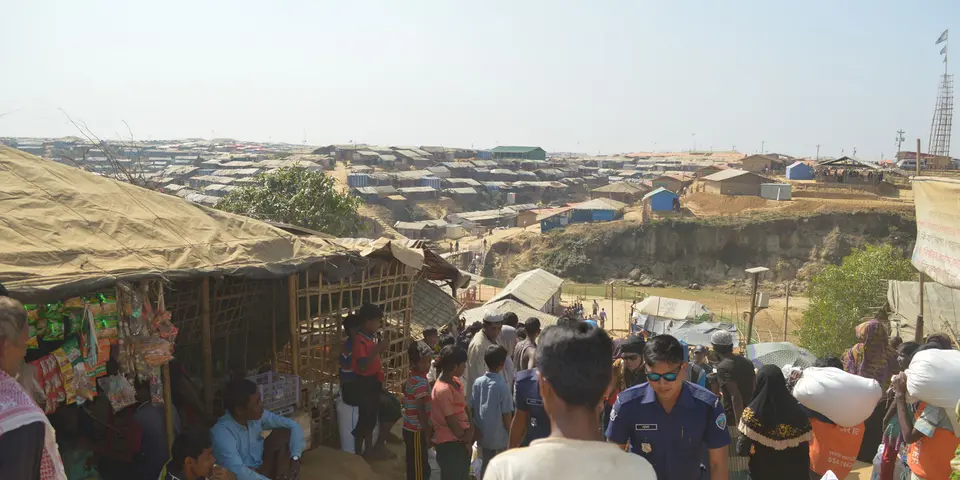
Regional MPs welcome decision granting International Criminal Court jurisdiction over crimes against Rohingya
September 14, 2018

JAKARTA – Regional lawmakers welcomed the decision of the International Criminal Court (ICC) on Thursday, which ruled that it could exercise jurisdiction over the alleged crime of deportation of the Rohingya population, despite Myanmar not being a party to the Rome Statute.
“This is a milestone decision and a step forward towards accountability for the alleged atrocity crimes against the Rohingya population,” said APHR Chair Charles Santiago, a member of the Malaysian Parliament.
“This ruling, however, is for now just on the jurisdiction to investigate around the alleged crime of deportation and we must be cautious in our optimism: it remains imperative that we continue to seek other international justice mechanisms, as well as the United Nations Security Council referral of Myanmar to the ICC for the wide array of atrocity crimes its leaders have been accused, including genocide and other crimes against humanity. This doesn’t mean the international community can take our collective foot off the pedal.”
On 6 September, the ICC found that, while the underlying “coercive acts” under the alleged crime against humanity of deportation of Rohingya took place in a State not party to the Rome Statute, the Court nevertheless could assert jurisdiction as an element of the crime had also occurred on the territory of a State party to the Statute –in this case, Bangladesh. The Court also concluded that such jurisdiction extended to other crimes of humanity under the Rome Statute, particularly those on the persecution of a group and other inhumane acts.
“The ICC now has the opportunity to initiate a full investigation. This means bringing those responsible for the alleged human rights violations to account and possibly putting an end to the longstanding discrimination and injustices this community has faced in Myanmar,” said APHR Board Member Eva Kusuma Sundari, a member of the House of Representatives of Indonesia.
“This will undoubtedly bring some much-needed hope and optimism for the more than one million Rohingya who have suffered under decades of brutal tyranny in Myanmar. We lookforward to the recommendations of the preliminary examination concerning the crimes allegedly committed against the Rohingya people and hope for a full investigation and trial of those accountable for all alleged crimes under the jurisdiction of the ICC.”
In the meantime, the international community, including ASEAN states, must continue pushing for other potential mechanisms that could bring accountability and justice for all those victims of crimes across Myanmar and ensure those displaced can return, APHR said.
“More than one million Rohingya have been forced from their homes over decades of discrimination and violence. International accountability is an important step towards justice but must be pursued alongside other efforts within Myanmar to ensure that those refugees and displaced persons can return home in a voluntary and dignified manner with assurances for their safety and full access to rights as citizens of Myanmar,” Sundari said.
In August, the UN Independent International Fact-Finding Mission on Myanmar found patterns of gross human rights violations committed in Rakhine, Kachin, and Shan States, and called for the investigation and prosecution of Myanmar’s top military generals. The Myanmar government has since continued to deny such allegations and have refused to accept the findings of the mission. It is due to deliver its full report to the UN Human Rights Council in Geneva on 18 September.
Click here to read this statement in Bahasa Indonesia.
Klik di sini untuk membaca pernyataan ini dalam Bahasa Indonesia
ASEAN Parliamentarians for Human Rights (APHR) was founded in June 2013 with the objective of promoting democracy and human rights across Southeast Asia. Our founding members include many of the region's most progressive Members of Parliament (MPs), with a proven track record of human rights advocacy work.